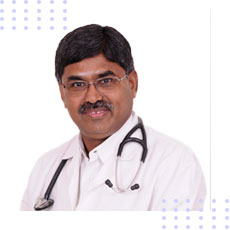Best Cardiology Hospital In Coimbatore

KG Hospital department of cardiology we believe prevention is better than cure. Our team of cardiologists, along with our chairman Padmashri Dr.Bakthavathsalam, have created tremendous awareness regarding the disease and first aid in various social media & TV channels.
KG Hospital Best cardiologist In Coimbatore are considered the Best Heart Specialists In Coimbatore.
With decades of experience, state-of-the-art facilities, dedicated support team, KG Heart Centre and Cardiologists are equipped to treat complicated cases of heart.
In addition to the regular procedures such as Angioplasties, we also perform Electrophysiology procedures
Your doctor will perform a physical exam and ask about your personal and family medical history. The tests you'll need to diagnose your heart disease depend on what condition your doctor thinks you might have.
Besides blood tests and a chest X-ray, tests to diagnose heart disease can include:
- Electrocardiogram (ECG) - An ECG is a quick and painless test that records the electrical signals in your heart. It can spot abnormal heart rhythms. You may have an ECG while you're at rest or while exercising (stress electrocardiogram).
- Holter monitoring - A Holter monitor is a portable ECG device you wear to continuously record your heart rhythm, usually for 24 to 72 hours. Holter monitoring is used to detect heart rhythm problems that aren't found during a regular ECG exam.
- Echocardiogram - This non in vasive exam uses sound waves to produce detailed images of your heart's structure. It shows how your heart beats and pumps blood.
- Stress test - This type of test involves raising your heart rate with exercise or medicine while performing heart tests and imaging to check how your heart responds.
- Cardiac catheterization - In this test, a short tube (sheath) is inserted into a vein or artery in your leg (groin) or arm. A hollow, flexible and longer tube (guide catheter) is then inserted into the sheath. Using X-ray images on a monitor as a guide, your doctor carefully threads the catheter through the artery until it reaches your heart. During cardiac catheterization, the pressures in your heart chambers can be measured, and dye can be injected. The dye can be seen on an X-ray, which helps your doctor see the blood flow through your heart, blood vessels and valves to check for problems.
- Cardiac computerized tomography (CT) scan - In a cardiac CT scan, you lie on a table inside a doughnut-shaped machine. An X-ray tube inside the machine rotates around your body and collects images of your heart and chest.
- Cardiac magnetic resonance imaging (MRI) - A cardiac MRI uses a magnetic field and computer-generated radio waves to create detailed images of your heart.





